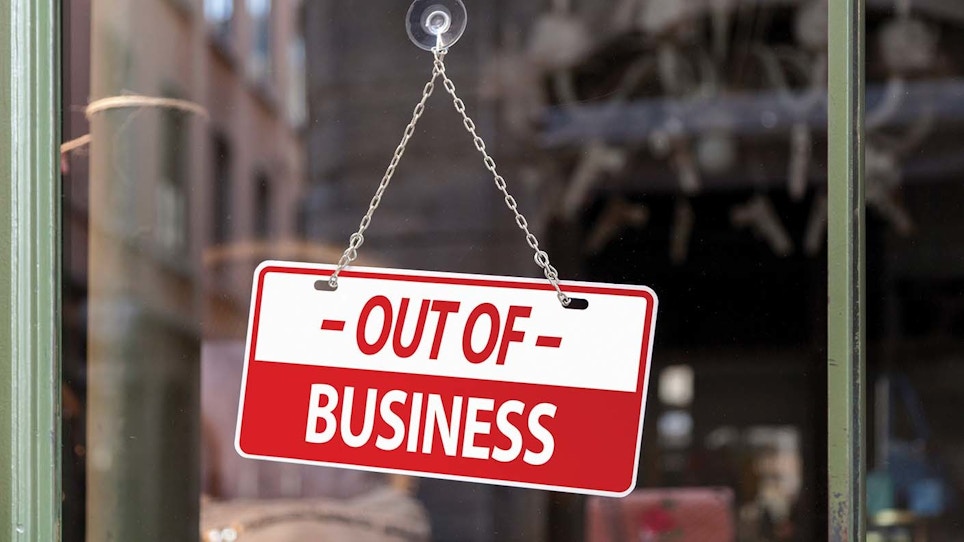Most readers of this magazine are like the majority of Americans in a very important way — they get up every morning, go to a job and work hard to make a living. Unlike most Americans, however, you are probably also the owner, co-owner or high-level manager in a retail establishment that sells firearms, ammunition and accessories.
That gives you much more responsibility than an average workaday person. Not only do you have to provide for yourself and your family, but you’re responsible for the well-being of everyone from employees and their families to customers, suppliers, owners and sometimes even shareholders. Often the amount of stress retailers are under isn’t understood by most whose jobs don’t have such high stakes. Keeping a retail establishment not only thriving, but also growing, is a tough task indeed — and not one that can be accomplished in eight hours a day.
Of course, there are many pitfalls that await tactical retailers as they go about their daily business. Let’s take a look at five common pitfalls to avoid that will hopefully help your retail establishment thrive a little better and be more profitable in the long run.
1. Ignore the Golden Rule
We might have been taught the Golden Rule — treat others as you would have them treat you — in kindergarten, but some retail business owners apparently were absent from school that day. No, just because you own a retail establishment and maybe make an above-average living doesn’t make you a superior person to those who shop in your store and buy your goods. And no, just because you are a successful business man or woman doesn’t make you a more important person than your cashiers, maintenance people or janitorial help.
People shopping in a retail setting are often more aware of what is happening in their surroundings than one might think, and that goes double for those looking for tactical firearms and accessories. Even the hint that you consider them with disdain can send them to make their purchase at another place — immediately. The same goes for those who see you treating an employee with contempt. Most customers work for someone, too, and few like to see a boss lording it over his or her employees, especially in a public setting.
It should go without saying that “Please,” “Thank you” and “Have a nice day” should be as common in a business setting as they are when dealing with family and friends. And those courtesies should go all the way to the top, as employees often model the behavior they see reflected in the way their managers deal with customers. Make sure all your employees know that your company policy is to always treat others as you would like to be treated.
2. Hire the Wrong Sales Associate(s)
Hiring the wrong sales associates is an easy trap to fall into for a number of reasons. However, doing so can be costly indeed — and you might not even realize it is costing you money.
First, while it might sound counterproductive, consider spending a little more money on salaries to hire really good sales associates with solid experience and proven people skills. Saving a few bucks an hour by hiring a sub-par sales associate might save you $16 a shift in salary, but it could cost you hundreds of dollars a shift in missed sales. Admittedly, it’s hard to quantify, but that’s exactly how you should look at it.
A good sales associate needs to be comfortable talking to customers and must truly show an interest in them and their needs. They should be willing to learn all about your inventory and know enough to tell customers about the products, their important features and why those products meet that customer’s particular needs, if they do.
A good sales associate must also be a good listener. In our seemingly ever-coarsening world, you might be surprised at how customers react to a sales associate who simply takes the time to listen to them and show an interest in their lives. That builds a trust that can’t be built by a salesperson who is constantly talking and never listening.
If you think your inventory, pricing, in-store display and advertising/marketing is right but you’re still not making the sales you believe you should, having the wrong sales associates just might be your limiting factor.
3. Practice Bait-and-Switch Tactics
Ask anyone who has ever gone to buy a car that they saw advertised in the newspaper or online, only to be pitched a different, more expensive car because the first one had been “sold” before they arrived, and they’ll likely tell you they detest the bait-and-switch sales tactic more than any other ruse. And it can occur among small retailers who specialize in firearms and related accessories, too.
If you have a gun on special but with a limited inventory, do yourself and your customers a favor and say so in your communications with them. That way, should the guns be sold before they make a long drive to your establishment, they’ll be more forgiving than if they think you tricked them into coming in order to sell them a more expensive model or one they don’t really want.
Sure, sometimes it’s still going to happen, and at times customers aren’t going to be happy because of a misunderstanding or poor communication. That’s when it is important for retailers or their sales associates to use their people skills and build a relationship with the customer rather than have an argument that separates them even further.
Customers remember if that happens, and most won’t return if they believe they have been tricked in such a manner, then treated poorly afterward. Worse yet, many are likely to tell their family and friends about their experience or even post extensively about it on social media.
4. Be a Clerk, Not a Salesperson
This can be a dangerous pitfall, especially in a smaller retail setting where you as the owner or manager mind your own shop much of the time. It’s easy to fall into the trap of sitting around behind the counter, fiddling on your smartphone or reading a magazine, and simply ringing up customers if and when they ever come to the cash register with their selected items.
Firearms, ammo and accessories are specialized items, and not all customers have extensive knowledge about those products like you do. They need help from you in order to consider their shopping experience satisfactory, and leaving them hanging or floundering on their own is a sure way to get poor sales and bad reviews.
Take a few minutes to learn a little about each of the customers entering your store. If they come often, you should know enough about them to be able to have a conversation about their likes, dislikes and preferred equipment types. Customers appreciate this interpersonal communication, and many will return again just because of that relationship. Additionally, some will also tell their family and friends. What could be better than completely free advertising coming from a previously satisfied customer?
Sure, ringing up sales is an important part of the job. But in doing so, don’t forget that you’re a salesperson first. Keep that in mind and you’ll likely see sales rise and more return customers.
5. Never Communicate With Customers
I’m not talking about communicating with customers inside the store, as we just discussed that. Communicating with customers when they are not in your store is equally important, if not more so. Fortunately, doing so is easier than ever, thanks to social media and other quick communication methods.
Retargeting customers is important because they are already proven purchasers — not just faceless names out there that you are hoping you might persuade to one day make a visit and a purchase. Targeted emails are one of the simplest ways to stay in touch. Emails concerning upcoming sales, store specials, visits by celebrities, remote radio broadcasts and other items of interest to customers allow you to keep in communication with them and let them know they haven’t been forgotten.
Customer loyalty programs have also long been productive for those wanting to stay in touch with and sell products to repeat customers. One of the most successful I’ve seen is a local grocery store chain that offers “fuel points” for money spent in the store. Buy $50 in groceries, and you receive three fuel points, which will save you 3 cents per gallon on gas with a local convenience store chain. In reality, the grocery chain’s prices are enough higher than some others in the area that the few cents saved on gas shouldn’t be able to draw frugal shoppers to the store to buy a cart of groceries that cost $10 more. But the allure of saving a dollar or so at the pump keeps the store’s parking lot packed and cash registers ringing.
Lastly, social media is a fantastic way to stay in touch and keep customers thinking about your business. The upside is that by connecting with your customers on social media, you are also connecting with their friends, sometimes taking your message to thousands of potential customers that would be hard or expensive to reach in other manners.
From a simple “Happy Friday” message to sharing a post about the latest news on Second Amendment issues, staying in constant touch with customers gives you multiple chances to get them back into your store. You can also consider offering a small discount to just those who saw the post on Facebook to increase the chances they’ll come make a purchase.
While avoiding these five pitfalls might seem simplistic to some, they are likely a good reminder to many that retail is always a tough business and customers can be finicky. Keep them happy, and life is always better. Leave them dissatisfied or worse, disgruntled, and keeping your business profitable will be a much higher hill to climb.






